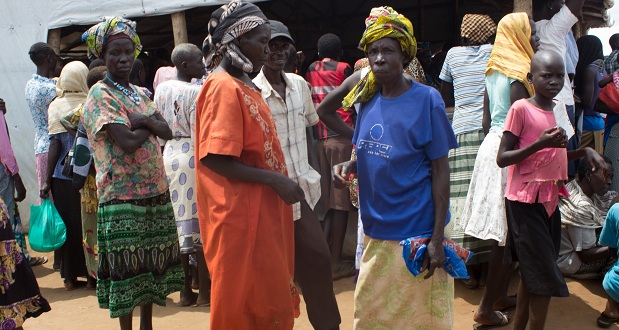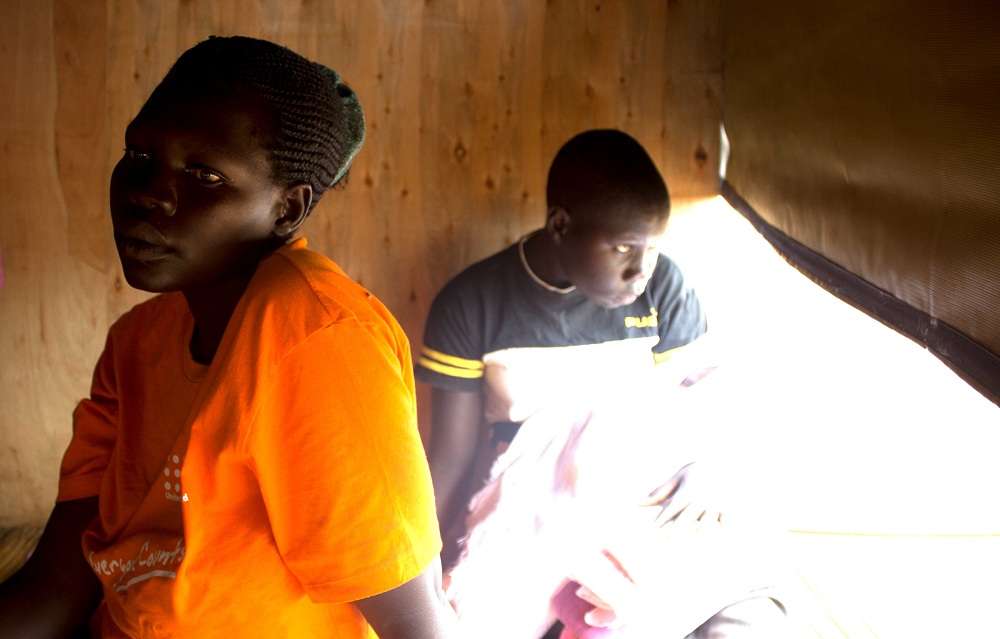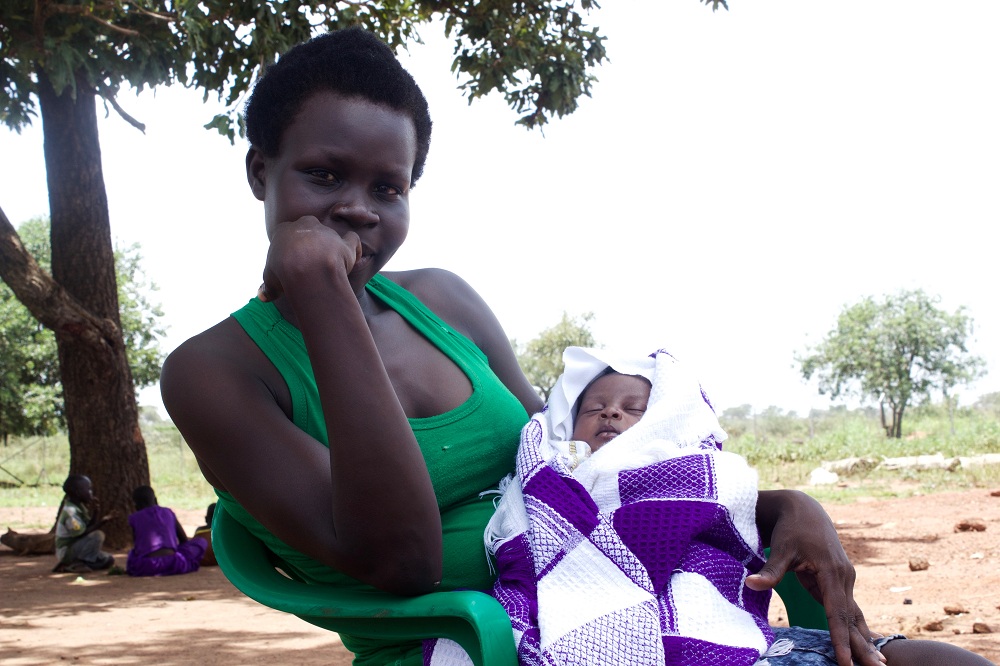
Fleeing a seemingly endless conflict, close to half of South Sudan’s one million refugees have fled across the borders of Africa’s youngest nation into Uganda where they and their families have found refuge from civil war that began in December 2013 and flared up in July. For Christina Lio and Kevin Foni, history seems to repeats itself. Decades ago, their parents were displaced by South Sudan’s long war of liberation from Sudan. Both women were born as refugees in Uganda and now they have given birth to their children in Ugandan refugee settlements.
Christina Lio, 24, a former farmer

I have a swollen breast. My baby, Enoch, is 3 weeks old [now a month old] but I cannot feed him because of this painful wound so he drinks milk from a bottle. I can’t even sleep at night because of the pain, it’s just too much.
I came to Uganda in July and I’ve been living here, in Pagarinya Settlement, for two months. We had to leave our home in Pageri [south-western South Sudan] because of the war. They were killing people, if they hate you they will kill you. They [rebels] didn’t care who you were, they would kill anybody. We couldn’t stay and so I came with my husband and our two small children aged seven and five.
I was eight months pregnant at the time and I wasn’t able to walk for a long distance so we took a three-wheeled motorbike from our village to the border. The whole family squeezed in and we rode to Elegu Collection Centre on the border between South Sudan and Uganda. From there, a refugee bus took us to Nyumanzi Transit Centre bus and now we are here.
It’s very different in Uganda, I feel very disconnected from this place. We are waiting for our lives to settle down and sometimes it feels like we are cattle just waiting for someone to take us to the grazing field. If they take you or they don’t, you cannot really choose where to go.
This is my first time to flee war, but my mother was a refugee. I was conceived and born in Uganda then shortly after my family went back to Sudan [now South Sudan]. It’s very hard to know whether there will be peace in South Sudan because the tribalism is so strong and that’s why people are fighting. But if the war stops, I hope we’ll go back to our farm where we used to grow cassava, groundnuts, maize and other things.
Kevin Foni, 21, a former student

I arrived in Uganda on the 22nd of August and I was eight months pregnant. The government soldiers had come to my village and they were looting everything, disturbing the people. Other people started looting too and I was scared. I had to run. Many people were leaving their homes so I just joined a group and we travelled together on foot to the border and when we reached Elegu, the buses brought us to Nyumanzi. My husband was still at school at the time and he followed soon after.
This was my first experience of war, but I have been in Uganda before. I was born here, as a refugee. I was born in Robidire Settlement near Alere [in north-eastern Uganda] and I lived there until 2006 until our family was repatriated back to Sudan [now South Sudan]. I was at school in South Sudan, but sometime ago I had to stop. My father said he no longer had the money to pay school fees and I was in P7, the year just before we finish primary school. I don’t know if I will continue here, but my husband is continuing high school here. He’s 24 and he’s in Senior 4 year, he has one more year to go before he writes his final exams. His mother lives here in Uganda, in Adjumani [a town nearby]. She was displaced a long time ago so she doesn’t live in the camps. From time to time she helps us with things for the baby and if we need other things.
I would like to be resettled in a camp so that we don’t have to live in the [Nyumanzi] transit center and we won’t have to move up and down. I don’t know if the war in South Sudan will stop, but I would like to go back home one day. I feel bad that my child has to be born a refugee, but I would like my daughter, Anzoa, to be educated and raised in a good place where there is peace.
This report was made possible through a reporting fellowship from the International Women’s Media Foundation.
As told to Tendai Marima, and edited for brevity and clarity








